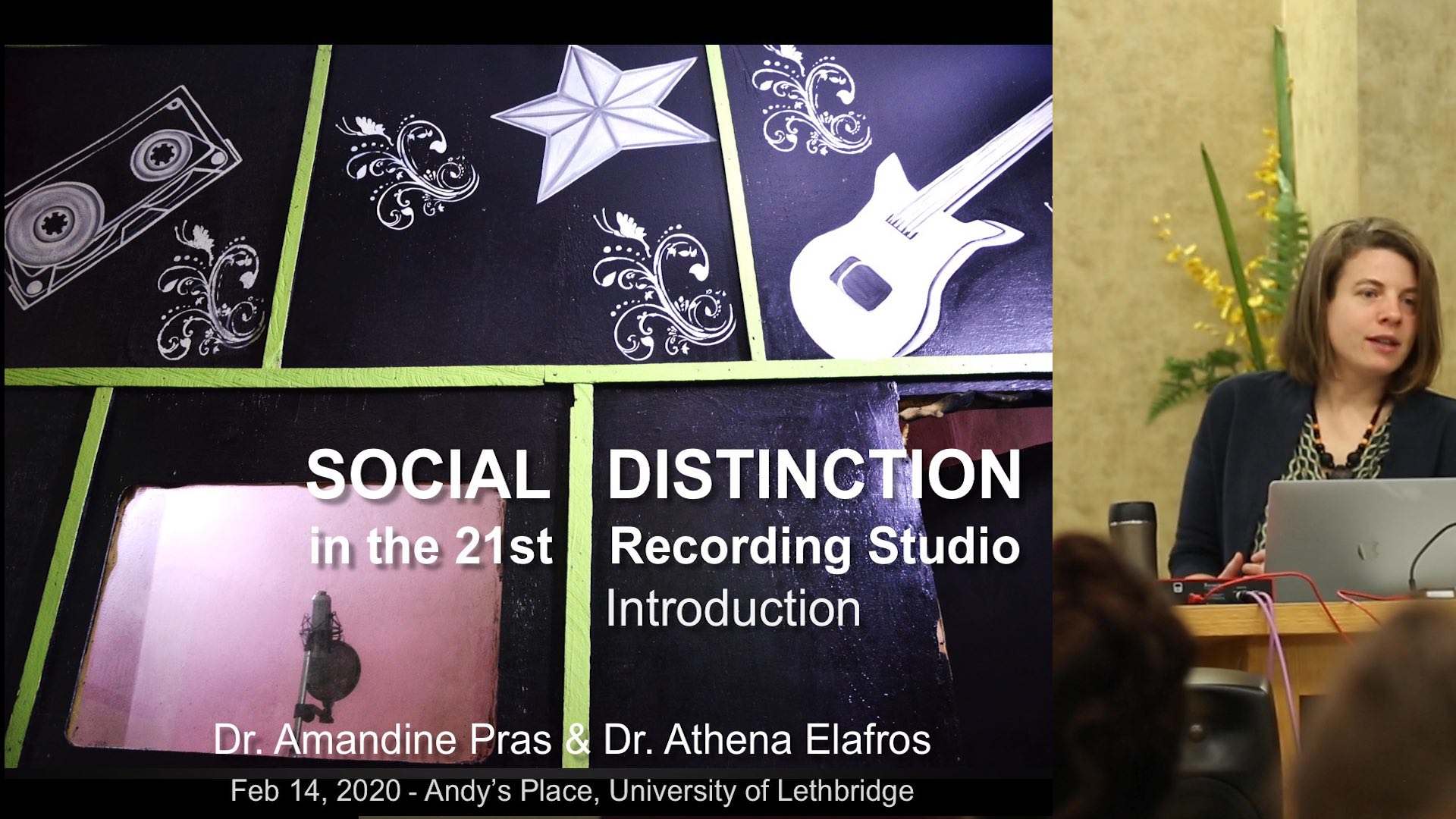Notice
Individual talks by Amandine Pras, Paul Thompson, Maël Peneau, Leonard Menon, and James Clemens-Seely
- document 1 document 2 document 3
- niveau 1 niveau 2 niveau 3
Descriptif
Amandine Pras introduces AFRINUM and the West African Audio Network partnerships. Paul Thompson characterizes three broad forms of learning methods in audio engineering and music production, namely formal, non-formal, and informal. Maël Peneau highlights how in Dakar, the only purpose of owning a mixing board is to give evidence of professionalism to clients, although it is almost never used for mixing. For instance, Senegalese beatmakers use their digital skills to build Kontakt instruments based on Yamaha DX7 presets that emulate traditional Senegambian percussion instruments in the local genre Mbalax. Leonard Menon explains how Malian arrangers challenge the production sequence of ‘recording – editing – mixing – mastering’ as they adopt a fluid workflow of adding, removing, and editing layers of vocals and instruments in Cubase until they start mastering. James Clemens-Seely shares his observations of the learning process of Malian audio engineer Issa Traoré (alias Ken Lagare) during his six-month residency in the Audio Recording Engineer Practicum at the Banff Centre (Canada). Lagare strengthened his mixing and mastering skills, especially in regard to the use of EQs and compressors, and has begun to experience the importance of studio acoustics in creating recordings.
Intervention
Thème
Avec les mêmes intervenants et intervenantes
-
Roundtable discussion about De-colonizing the Digital Audio Workstation
BATES Eliot
MENON Leonard
Dr. Eliot Bates (Graduate Centre, City University of New York), and Éliézer Oubda (Hope Muziks Studio, Burkina Faso) share their experiences working and teaching within and around the confines of the
-
Roundtable discussion about Critical Listening and Technical Ear Training
THOMPSON Paul
CLEMENS-SEELY James
Dr. Paul Thompson (Leeds-Beckett University, UK) and James Clemens-Seely (Banff Centre, Alberta) explore differing viewpoints on the benefits and limitations of using ‘Technical Ear Training’ (TET)
-
Critical Listening Tools and Tactics for Sound Specialists by James Clemens-Seely
CLEMENS-SEELY James
James Clemens-Seely presents a practical introduction to the merits and pitfalls of technical ear training as an approach to increasing critical listening and analytic skills in developing audio
-
Panel discussion
THOMPSON Paul
PENEAU Mael
PRAS Amandine
CLEMENS-SEELY James
MENON Leonard
In this panel, we highlight how the templates within DAWs shape the digital practices of West African studio professionals who have had limited exposure to the culture of analog recording and
-
Introduction to Social distinction in the 21st recording studio by Amandine Pras
PRAS Amandine
The recording studio represents a creative workplace with audio technology that deserves more attention from the Social Sciences and Humanities. Since the beginning of the 21st century, the
-
Creative processes of Malian beatmakers, audio engineers and music producers
TURNER Kierian
MENON Leonard
BOL Toby
University of Lethbridge students Toby Bol, Kierian Turner, and Leonard Menon play short video montages that they edited from the video data that was collected by Amandine Pras and Emmanuelle Olivier
-
Strength in Diversity: Learning-through-doing in the Audio Recording Engineer at the Banff Centre
CLEMENS-SEELY James
The Audio Recording Engineer Practicum of the Banff Centre mentored by James ClemensSeely hosts up to nine international participants to refine their technical and artistic skills in residencies from









